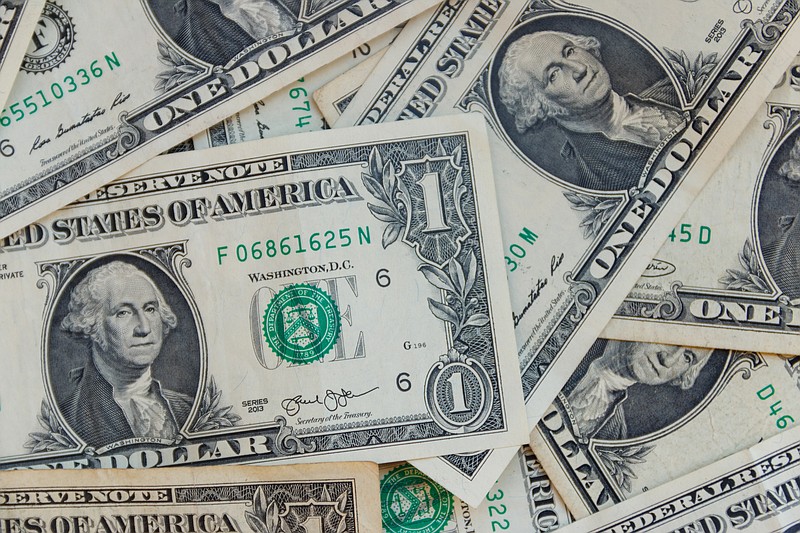President-elect Joe Biden will take office on January 20 with what is, from his perspective, a challenging makeup in the 117th United States Congress. National opinion polls leading up to the election favored a so-called "Blue Wave," a Democratic sweep including nominal control of the Senate and a larger majority in the House of Representatives. In the end, Republicans narrowed the gap in the House and will retain a slim Senate edge if at least one of the runoff elections in Georgia goes their way. Remarkably, after the most contested and vituperative election in the modern era, the ingenious American system of democracy worked again, drawing 62% of eligible voters during a once-in-a-century pandemic.
For investors, it may prove to be the best possible outcome.
It is often forgotten that U.S. presidents get too much credit and incur too much blame for the performance of the economy and the stock market. Businesses and investors are adept at adjusting to an evolving legislative and regulatory landscape; what they dislike more is a high degree of uncertainty. As the opinion polls coalesced around a Blue Wave scenario, stocks rallied strongly on the perception of certainty despite the consensus that the likely result would be higher taxes and more regulation.
With the weaker than expected performance by Democrats in Congress and a decisive Electoral College margin for Biden, investors are now recalibrating expectations toward the odds of a moderate but sustained economic recovery and respectable market performance over the next few years.
The coronavirus remains the greatest threat to economic prosperity, particularly considering the recent geometric spike in cases. Biden on Monday appointed a heavyweight COVID-19 Transition Advisory Board comprised of prominent infectious disease experts tasked with implementing a more aggressive government response to the pandemic. In addition, Pfizer announced on Monday positive initial data from late-stage vaccine trials, reinforcing the hope for broad distribution of effective inoculations by mid-2021.
The odds of additional fiscal stimulus also appear to have increased with the election results. The loss of House seats by her caucus reduces the leverage of Speaker Pelosi in promoting her more partisan bill, while the narrowing Republican Senate majority makes a compromise more likely. Yet perhaps the most interesting development to watch is the interaction between a President Biden and Senate Majority Leader Mitch McConnell.
While McConnell has successfully prioritized confirmation of conservative judicial appointments, his relationship with President Trump has been fraught. By contrast, the Majority Leader and the President-Elect have a long and cooperative relationship as U.S. Senate colleagues going back to McConnell's freshman term in 1985.
As vice president, Biden was frequently dispatched by the Obama Administration to cut deals with McConnell to great effect, including a 2 year extension of the Bush tax cuts, a debt ceiling deal to avert a shutdown in 2011, and a 2012 budget agreement averting the so-called "fiscal cliff." Each man views the other as a trustworthy negotiating partner, so much so that Biden has occasionally drawn criticism from Progressive Democrats for being too amenable to compromise. McConnell was the only Republican Senator to attend the funeral of Biden's son Beau in 2015.
Both men are also cognizant of their respective legacies. McConnell's overriding interest is in holding control of the Senate but faces a challenging electoral map in 2022 with Republicans defending 21 seats to the Democrats' 13 (assuming Republicans prevail on both Georgia runoffs). If Biden reaches out, Republicans will face considerable pressure to deal, and as a lifelong legislator, Biden knows which levers to pull. Politico magazine recently dubbed McConnell and Biden "America's new power couple."
Meanwhile, the President-elect knows that his Cabinet secretaries and major agency heads will require Republican Senate confirmation, ensuring that the more progressive voices in Biden's party are unlikely to prevail in significant policy considerations. Change is afoot, but as the Founders intended, it will be incremental.
Aside from congressional relations, investors are also looking toward resolving other uncertainties. A new President Biden is certain to begin restoring frayed alliances internationally, beginning with an armistice in the trade war. Taking down the destructive tariffs and reiterating our commitment to American leadership will help begin to break up the sea ice impeding global trade, an outcome most welcome especially to American farmers.
A President Biden is unlikely to enjoy a "honeymoon" in the traditional sense. But the developing outlook for a closely divided government, with a President willing to extend a hand and a Congress incented to take it, bodes well, and may turn out to be the best-case scenario. Just like James Monroe imagined it.
Christopher A. Hopkins, CFA, is a vice president and portfolio manager for Barnett & Co.
